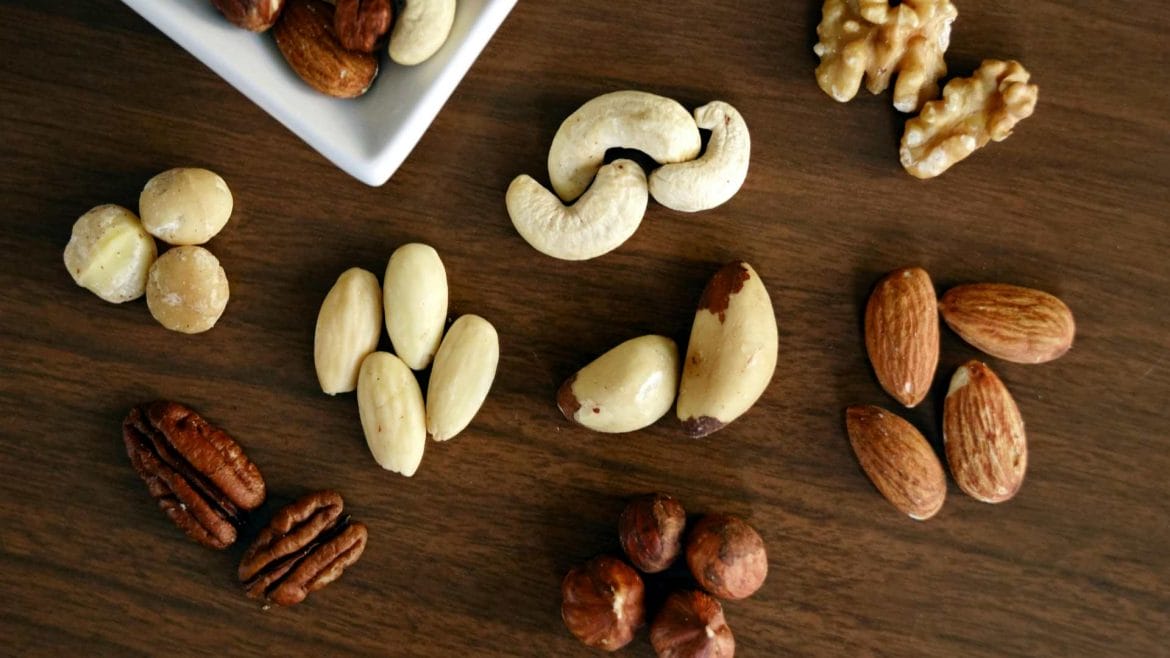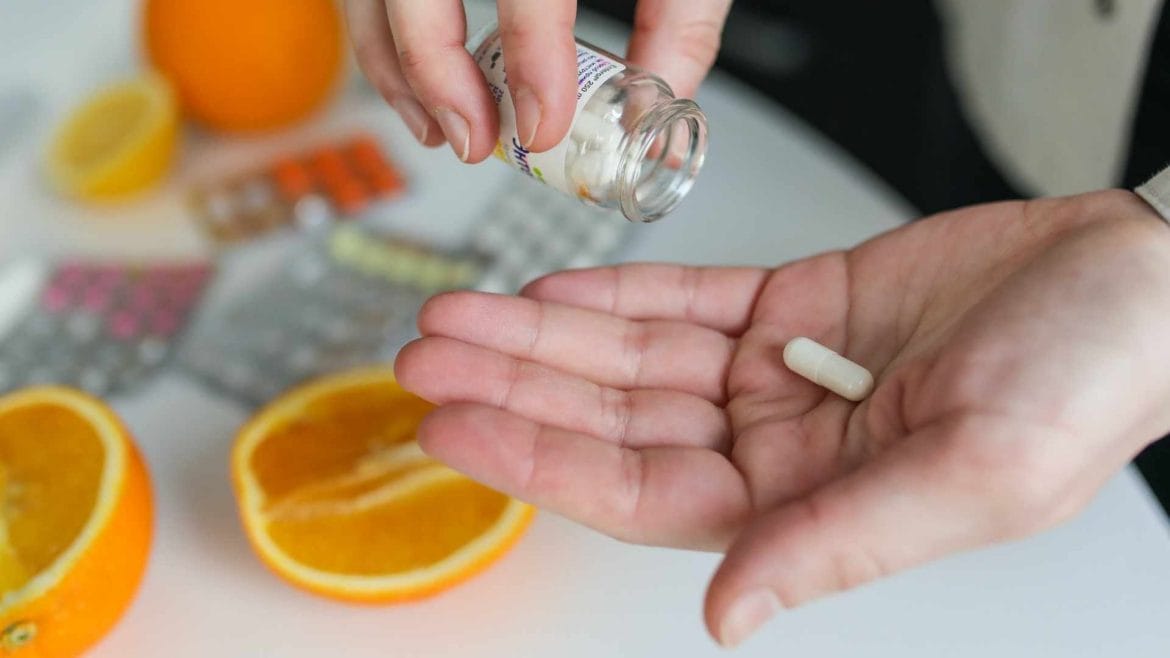In the words of Emo Philips, “I used to think that the brain was the most wonderful organ in my body. Then I realised who was telling me this.”
Indeed, our brains are remarkable, yet often overlooked, organs that play a pivotal role in our overall health and well-being, especially as we age. In this post we explore strategies to mitigate aging-related diseases and promote vibrant cognitive function as we age.
Understanding Brain Aging: Contrary to popular belief, the brain is not an isolated entity but intricately connected to the rest of the body. Just like any other organ, the brain requires proper nourishment and care to function optimally. Aging presents unique challenges to brain health, including increased neuroinflammation, oxidative stress, and reduced neuroprotection. However, by addressing these factors through nutrition and lifestyle interventions, we can support healthy aging and mitigate the risk of cognitive decline.

Your brain on aging…
What does your brain need to age well?
Decreased and/or controlled neuroinflammation
Good cerebral blood flow and healthy vascularization (growth and maintenance of blood vessels)
Neuroprotection from degradation, oxidative stress, and injury
A healthy body fat range (which prevents obesity-related inflammation)
Good glucose and insulin management
Maintenance of iron homeostasis and control of excess iron buildup
Fatty acid balance (including adequate omega-3s and cholesterol)
Because they’re so metabolically active (responsible for about 1/5 of our daily energy needs) brains are particularly sensitive to oxidative stress.

Diet strategies for brain health
Here are some strategies that you can incorporate into actionable steps… Remember that brain health is a lifetime project!
Maintain a healthy body fat range and/or weight. This healthy body fat percentage/body weight may be somewhat higher if older. However, it should still reflect a good nutrition program and regular activity — i.e., metabolic health.
Decrease inflammation and oxidative stress. Decreasing inflammatory foods (such as sugar, processed foods, and food intolerances) and increasing anti-inflammatory foods (such as omega-3 fatty acids and colorful fruits and veggies) is a foundational strategy.
Keep blood glucose relatively constant. Brain aging and neuroinflammation is correlated with both poor glucose management and hyperinsulinemia. Aim to eat regularly spaced meals that include some slow-digesting, high-fibre carbs. Follow some variant of a traditional Mediterranean-style and/or East Asian-style diet.
When following their ancestral diets, both populations in these regions are notably long-lived. Such diets include: lots of fresh fruits and vegetables small portions of lean meats and poultry plenty of fish and seafood (East Asians include lots of sea vegetables as well) beans and legumes minimal dairy (and dairy foods are often fermented, e.g., yogurt) fermented foods (such as lactic-pickled vegetables or natto) relatively unprocessed fats, such as nuts, oily fish, and cold-pressed olive oil liberal use of herbs and spices
Balance fatty acids and augment fat-soluble nutrients. Shoot for about 1/3 each of unsaturated, monounsaturated, and saturated fats from whole-food sources. Minimise industrial seeds oils (e.g. corn, soybean, safflower, sunflower, and cottonseed) and boost omega-3s, particularly EPA/DHA. Also include adequate vitamin A and D.
Include several sources of dietary flavonoids and antioxidants. These may protect neurons against injury induced by neurotoxins, suppress neuroinflammation, and promote memory, learning and cognitive function.
This includes such foods as: dark chocolate/cocoa green tea colorful berries (e.g. blueberries) leafy green vegetables other colorful fruits and veggies small amounts of red wine (excess alcohol consumption worsens brain health) garlic, onion, and brassicas.
There is emerging evidence that coenzyme Q10 (coQ10) and alpha-lipoic acid may play key roles in improving cognitive function as well.

Supplementation may be useful
Supplement with a multivitamin/multimineral as needed.
As people age, appetite declines. Less food means fewer nutrients. Malnutrition is common in older people.
Many vitamin or mineral deficiencies can manifest as cognitive decline and dementia.
For example, vitamin B12 deficiency is common in older adults and even more prevalent in individuals with dementia. Another study found that long-term high-dose B-vitamin treatment slowed brain shrinkage by as much as seven times, particularly in areas vulnerable to Alzheimer’s, and decreased homocysteine levels (a marker of inflammation).
However, studies of antioxidant supplementation (such as vitamin C and E) have found that supplementation of individual antioxidants or vitamins has either no effect or actively causes harm.
So simply correct deficiencies with a multivitamin/mineral supplement, and rely on real food for the rest.
You can work with a naturopath or doctor to get vitamin and mineral tests. (For a full list of lab tests, check out Lab Tests Online and search on “vitamin” or “mineral” — or the specific name of a substance such as “calcium”.)
Supplement with digestive enzymes (including betaine HCl) and probiotics.
Aging also reduces production of digestive enzymes, stomach acid, and healthy bacterial flora. Decreased nutrient absorption and disrupted GI bacteria can affect brain health.
Supplement with BCAAs.
Protein synthesis declines with age, and BCAAs are easily absorbed and used, even in people whose digestion isn’t so great.
You may also find that protein powder is a good option for older folks who don’t want to cook.
Supplement with natural anti-inflammatories.
As with supplementation for injury, this can include:
- EPA/DHA (e.g., fish oil, krill oil, or algae oil), but with older clients double-check any medication interactions
- turmeric/curcumin and/or ginger
- bromelain and papain (which will also help digestion)
- MSM
Supplement with phosphatidylserine.
Often used to lower cortisol levels, PS can also be used for brain health, as it may improve cognition and slow memory loss. PS improves the functioning of genes involved in degenerative brain disorders, including Parkinson’s disease and Familial Dysautonomia (FD).
Supplement with natural blood sugar/insulin regulators if needed.
This can include formulations with cinnamon and berberine. Natural blood sugar regulators are often as effective as pharmaceuticals such as Metformin, with fewer side effects. This is a good first line of defense before putting clients on medication.

What else is involved?
Mainstream dietary approaches often focus on what healthy older people are eating, forgetting the other key piece: what healthy older people (and their brains) are doing.
- Healthy older bodies are moving , with lots of daily activity beyond just “working out”. For example, one study showed that one year of an aerobic exercise program among people aged 55–80 increased the volume of brain areas devoted to attention, memory and the control of cognition. (Meanwhile, the no-exercise control group lost brain volume.)
- Healthy older brains are active — solving puzzles and problems, sharing wisdom, and committed to lifelong learning.
- Healthy older people are connecting and engaging with others, and are part of a rich social network full of meaningful and rewarding personal relationships.
